freespeech
Latest

The Facebook president and Zuck's racist rulebook
If a political campaign is an engine then propaganda is its oil, and its gas is the medium of communication with voters. The hacking of the DNC and tonnes of raw crude in propaganda mined out through WikiLeaks, Breitbart and Daily Stormer was black gold for the Trump campaign.
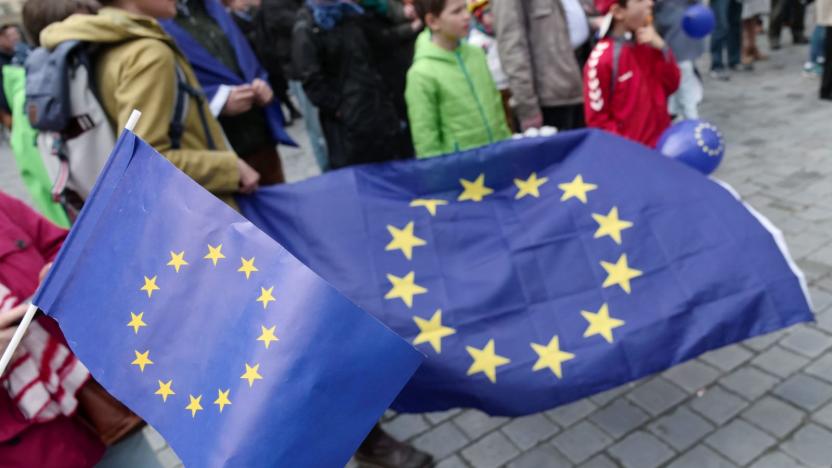
Europe may harmonize how internet companies fight hate speech
Internet companies are already taking action against hate speech, but it's no secret that they don't always tackle it in the same way. One may delete the hostile material immediately, while the other might spend days reviewing it before taking action. That wildly inconsistent approach might not fly in European Union countries before long. Reuters says it has obtained a draft European Commission document proposing that the EU implement measures that harmonize how online firms remove hate speech, child porn and other illegal content. Just how they'd take material down isn't clear, but Facebook, Google, Microsoft and Twitter have already agreed to an EU code of conduct that requires takedowns within 24 hours -- this would dictate how they pull the offensive content.
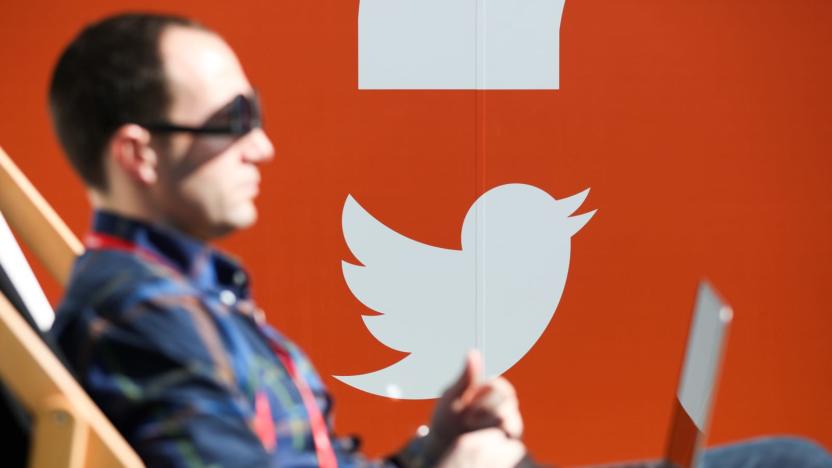
Twitter triples suspensions of pro-terrorist accounts in one year
If it wasn't already clear that Twitter is serious about stamping out pro-terrorist accounts, it is now. The social network has posted its transparency report for the second half of 2016, which reveals that it suspended over 376,000 accounts for backing terrorism. That's triple the 125,000 it took down one year earlier, and a still-hefty 60 percent more than the 235,000 accounts it pulled in the first half of 2016. While some officials still don't think Twitter is up to snuff (it's not proactively reporting extremist material to police, the UK says), there's no doubt that it's considerably more aggressive.

Turkey says it's investigating 10,000 social network users
Turkey has been cracking down on internet activity at a frenetic pace ever since an attempted military coup in the summer, and it's now clear that there are a lot of people caught in the dragnet. The country's interior ministry has revealed that officials are investigating about 10,000 social network users suspected of backing terrorism. About 3,710 people have been questioned in the past 6 months, authorities say, and 1,656 were arrested. The rest were let go, but 1,203 of them are still under watch.
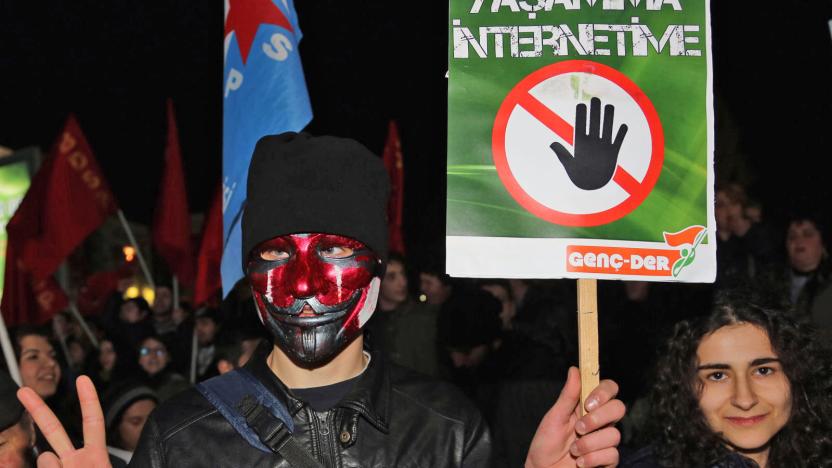
Turkey blocks Tor's anonymity network
Turkey's President Erdogan and the ruling AKP party are increasingly bent on silencing online dissent, and that now affects you even if you're smart enough to evade typical censorship methods. Watchdog group Turkey Blocks has confirmed that Turkey is blocking the Tor anonymity network's direct access mode for most users. You can still use a bridge mode for now, but there are hints that internet providers might be hurting performance even then. The restrictions come alongside a recent government ban on virtual private network services.
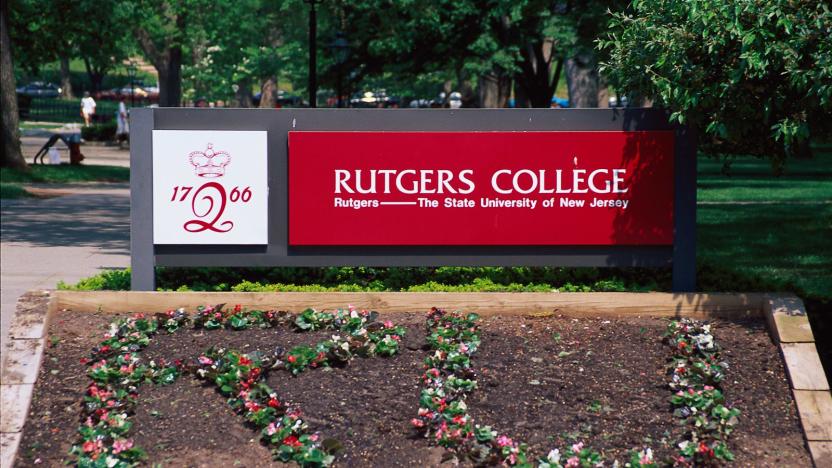
Rutgers professor forced to take psych evaluation over tweets
What you say online has consequences. An adjunct professor from Rutgers learned that this week after he was detained by police and forced to take a psych evaluation after asking his class a few hyperbolic questions and later posting versions of them to Twitter. According to the New York Daily News, last Wednesday Kevin Allred asked his class if conservatives would care as much about the Second Amendment if guns killed more white people. "In class, we talked about flag burning generally as a form of protest, and what does the flag mean to different people," Allred told the publication.

Secret's anonymous sharing is coming back as a response to Trump
Secret's air-your-dirty-laundry service collapsed about as quickly as it rose to prominence, but it looks like it's poised for a comeback thanks to the new political climate. Co-creator David Byttow has vowed that "Secret V2" is on the way as an explicit answer to Donald Trump winning the US election -- "it's too important not to exist," he says. In a chat with our friends at TechCrunch, he paints it as a way to both encourage authenticity and bridge political divides. The US can't "heal and work together" if people aren't comfortable being themselves and aren't self-aware, Byttow argues. This wouldn't be a simple matter of turning the servers back on and re-releasing the apps, though.

Tanzania charges man with 'insulting' its leader on WhatsApp
Attempts to clamp down on free speech online aren't just limited to public social network posts. Tanzania has charged five men with insulting President John Magufuli on social networks, one of whom (lecturer Dennis Mtegwa) is accused of offending the country's leader in a WhatsApp discussion group. The other four have also been charged with using Facebook and WhatsApp posts to turn people against the police. All five have denied the charges and are currently free on bail.
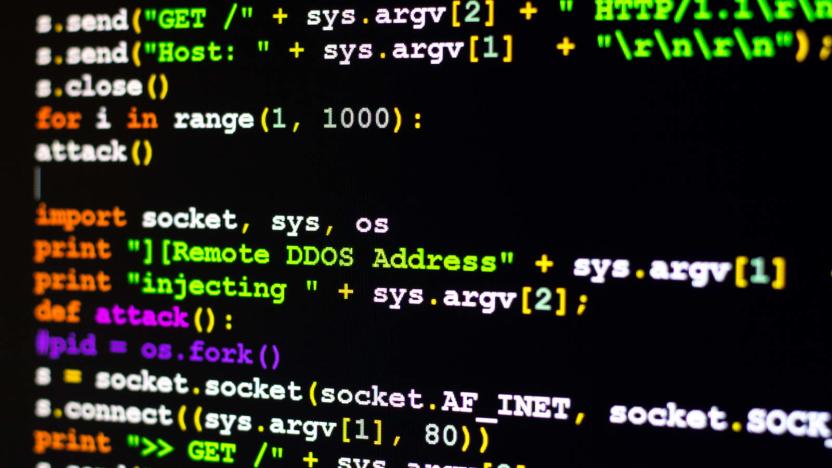
Security writer recovers from massive revenge cyberattack
Journalists are no stranger to making enemies bent on retaliation. However, it's becoming increasingly difficult to survive that retaliation in the internet era... just ask security writer Brian Krebs. An unknown party knocked his website offline last week with a massive distributed denial of service attack (620Gbps of non-stop data) as revenge for exposing two major cyberattack sellers who've since been arrested. He's only back online after taking advantage of Alphabet's Project Shield, which protects journalists against censorship-oriented denial of service campaigns. His previous anti-DDoS provider, Akamai, had little choice but to drop him -- the company tells the Boston Globe that a sustained attack on that level would have cost the company "millions."

Court claims Google lost right to pull site from search results
You'd think that Google's search results would be protected in the US by free speech rights. Google gets to say what what shows up on its own site, right? However, one Florida court thinks differently. It recently determined that Google wasn't protected by the Constitution's First Amendment when it pulled search engine optimization firm E-ventures' website from its index. Google supposedly crossed the line when it claimed E-ventures was violating its policies by posting "pure spam" -- this wasn't strictly true, the court argued, and was driven by "anti-competitive motives" rather than self-expression.

Bangladesh blocks Facebook and chat apps to stop 'crimes'
To call things tense in Bangladesh would be an understatement: the country recently executed two high-profile leaders for decades-old war crimes, and ISIS (aka Daesh) claims to have killed an Italian priest. However, its government may have gone overboard in attempting to silence this unrest. The country's officials have blocked Facebook and multiple chat apps (including Facebook Messenger, WhatsApp and Viber) on the grounds that they're being used to "carry out crimes." Just what those activities are isn't clear, but Bangladesh silenced messaging apps earlier this year to discourage protests. It wouldn't be surprising if officials are once again treating online censorship as a national security tool -- cut the internet chatter and the protesters (both for and against executions) potentially go away.

Turkey blocks Reddit through its internet censorship law
The Turkish government's eagerness to censor the internet isn't letting up any time soon. The country's officials have blocked Reddit under the guise of Internet Law 5651, which lets Turkey ban sites it suspects of hosting 'scandalous' content like piracy, porn or criticism of first President Mustafa Ataturk. It's relatively easy to circumvent the block (you just have to switch your DNS settings), but there's no hint that the government is about to have a change of heart.

Internet tool fights censorship by making banned data look 'normal'
It's getting harder to evade censorship in countries like China and Iran, which have increasingly taken to blocking VPNs, the Tor network and any other service that might let you see the unflattering truth. A clever new tool should help you leap over those hurdles, however. Marionette, developed by researchers at RedJack and Portland State University, masks your visits to banned sites and services by making your data transmissions seem innocuous. It doesn't just disguise the traffic type -- you can program it to mimic the variances you'd expect from a given form of traffic (say, a voice chat) and respond in a convincing way when the censors' blocking software comes calling.

Reddit rolls over to please Russia's authorities
Remember the tale of how Reddit managed to get itself banned in Russia because of a thread that promoted the growing of psychedelic mushrooms? A few days later and the site has returned, mostly because it rolled over and locally blocked the offending content to please the country's internet regulator, Roskomnadzor. The move has attracted criticism from the user who posted the piece originally, saying that the site shouldn't give in to the demands. The plea fell on deaf ears over at Reddit HQ, however, since the company is still suffering through an existential crisis about what forms of speech it will and won't allow.

India will partly reverse its online porn ban
It looks like the Indian government's broad attempt to block internet porn didn't last long. Officials say they'll lift a ban on many of the 857 sites just recently cut off for being "immoral and indecent." They should be fine as long as they don't promote child porn, the country's communications minister says. It's not certain what prompted the change of heart, but a public backlash didn't help -- critics argued that the censorship violated personal liberty and wouldn't be very effective given the ease of finding alternatives. As it stands, Indian researchers argue that it's more important to tackle sexual violence than keep images of consenting adults off of people's screens. [Image credits: AP Photo/Rajesh Kumar Singh]

India blocks hundreds of sex sites in the name of 'decency'
India's government has been threatening to crack down on porn in the country, and it looks like the administration has made good on its word. The Department of Telecommunications has blocked 857 sex sites (including everything from Fleshbot's blog through to hookup site Adult Friend Finder) in the name of "decency." While the restrictions may not affect everyone -- some mobile users report unfettered access, for example -- they're definitely noticeable on at least some landline internet providers. Officials claim that India's IT Act grants them the authority to block content if it preserves "public order" and prevents sites from inciting crimes.

Police think even a holographic Chief Keef concert is too risky
Midwestern authorities really don't like Chief Keef -- there are warrants for his arrest in the region, while Chicago Mayor Rahm Emanuel has gone so far as to say the young man "promotes violence" when he performs. And apparently, that public safety concern also covers virtual performances. Police in Hammond, Indiana shut down a surprise holographic Keef concert (technically, a Pepper's Ghost trick) this weekend despite the flesh-and-bone star being 2,000 miles away in Beverly Hills, California. Officials had warned that they would clamp down if they saw Keef play, but a festival promoter argues that they didn't have a "real reason" why a hologram wasn't allowed -- especially since the musician was fundraising for victims of violence.

Reddit's user revolt is the best thing for Reddit... and the internet
One day, internet users will learn "free speech" doesn't give them the right to harass others without any consequences. This is not that day. After Reddit announced yesterday that it would finally start curtailing the worst behavior of its users -- that is, by banning community sites ("subreddits") that harass people -- a vocal contingent of its users began freaking the hell out. There were sexist posts railing against Reddit interim CEO Ellen Pao and plenty of users threatening to abandon the site for alternatives like Voat (which is essentially a Reddit clone). It was all because they thought Reddit was restricting their free speech, something they have no actual right to on the site in the first place. But while it might seem like Reddit is on the brink of falling apart, after seeing the noxious elements of its community metastasize over the years like a cancer, the revolt actually seems like good news for the site. And, in many ways, it's a hopeful sign for the future of the web.

Iran backs away from censoring whole websites
Iran's current approach to internet censorship typically isn't subtle -- either you get unfettered access, or (more often) you don't see a site at all. However, the country's government is about to take a more measured approach to blocking online content it doesn't like. It's deploying "intelligent filtering" that tries to restrict only the material deemed "criminal or unethical," rather than cutting off an entire service. The smarter filter is only active on one social network (most likely Instagram) as part of a test phase, but it's expanding to more sites within the next six months. Ultimately, the nation wants to use this technology on "all networks."

Court rules Google can arrange search results any way it wants
With the First Amendment behind it, Google is now free to put search results in whatever order it wants, according to a recent ruling by a US court in San Francisco. The company has been fighting to earn this right for years, but it wasn't until last week that a judge in the Bay Area decided to grant the search giant such a thing, citing freedom of speech as the main influencer in the decision. It all started back when a site known as CoastNews filed a lawsuit arguing that Google was knowingly lowering its rankings in search results; the tech giant supposedly viewed it like a competitor and, thus, didn't want it to succeed. Shortly thereafter, Google quickly answered with an anti-SLAPP motion, which is often used by defendants to guard against litigation that would deter free speech.





